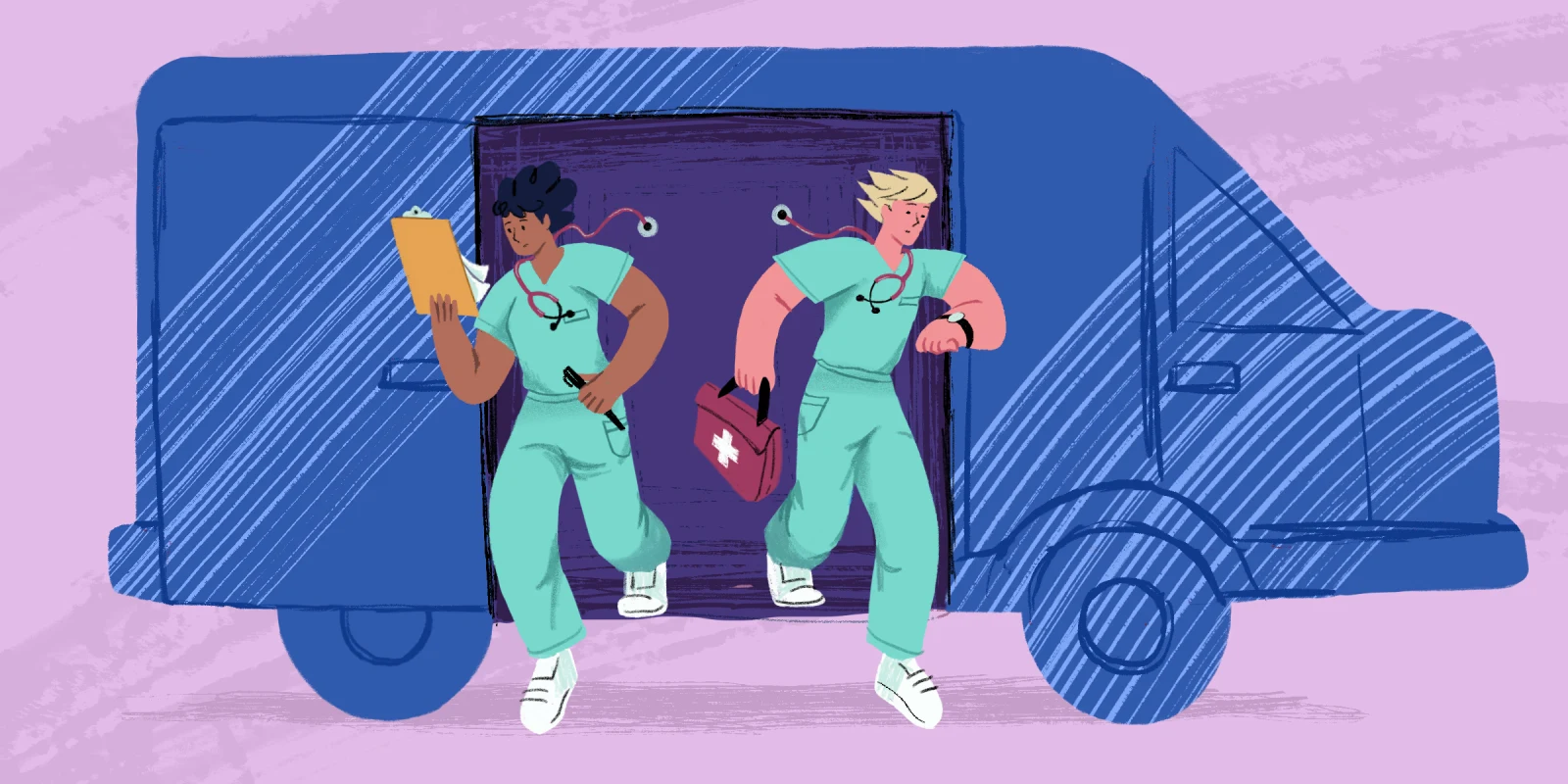At the start of 2024, the MOBILE Health Care Act went into effect, significantly simplifying the process of operating a mobile health clinic for health centers, particularly those serving rural areas. In a health care landscape punctuated by long distances to access care, soaring costs, and long wait times, compelling evidence for a fundamental change in delivering care has emerged: patients with chronic diseases receiving hospital-at-home care had a 26% lower risk of readmission and a reduced risk for long-term care admissions while maintaining a similar mortality risk to those receiving in-hospital care. This striking fact challenges the status quo by elevating patient-centeredness and accessibility. In light of these findings, it becomes imperative for health systems to innovate and adapt. One such innovation is the integration of mobile health units. These units, adept at bridging the gap in accessibility and patient-centered care, can significantly contribute to serving populations in remote or underserved areas, and health care systems should embrace these units as a means to serve their populations effectively. Drawing from my firsthand experience as a physician volunteering in such units, I can firmly say mobile health clinics can be a pivotal component in this transformative health care approach.
Reflecting on my days as a medical intern, the reality of patient struggles hit close to home. Seniors, those with disabilities, and patients with severe complications often shared their difficulties in getting to the clinic or hospital — challenges that many of us can scarcely imagine. For them, what we consider simple — a trip to the doctor — is riddled with obstacles: lengthy distances, prolonged wait times, the hassle of arranging transport, or not having someone to accompany them. They spoke of the very real fear of hospital-acquired infections, particularly for those already battling chronic conditions or with weakened immune systems. These concerns are deeply valid and contribute to a vicious cycle where disease management is delayed and health outcomes are compromised. It was there that I thought about “patient-centric care” which advocates bringing care to the patient instead of making the patient come to the hospital.
The transformative potential of mobile health clinics inspired me to apply for the Albert Schweitzer Fellowship, aiming to realize my vision of patient-centric care. During this project, I volunteered at a federally qualified health center, coordinating the deployment of mobile health units and providing essential health screenings through these units. It was here that I witnessed the true narrative of mobile health clinics unfold, not just as facilities on wheels but as a vital extension of health care access. A few days a week, the mobile unit staff and I would drive for hours from a community health center to reach migrant farmers working in the surrounding farms of North Carolina. There, I performed exams, including blood pressure screenings, and addressed any other medical complaints they had. We also scheduled their next free visit to the health center for thorough checkups based on their conditions. Our work quickly demonstrated its effectiveness as I soon discovered that a significant proportion of these farmers had undetected elevated blood pressures, unresolved medical complaints, and missed follow-ups for chronic conditions, all due to low accessibility to care in their remote settings. One patient, previously diagnosed with hypertension, had been unable to attend a follow-up visit to update his daily medications. During my exam, I noted clearly elevated and chronically uncontrolled high blood pressure. We promptly scheduled a visit for him and brought him to our community clinic for a more comprehensive exam. Had we not visited and brought him to the community health center, his hypertension might have progressed to severe complications such as heart failure.
A mobile clinic isn’t a new concept. WHO’s advocacy for mobile clinics, demonstrated by successful deployments in countries like Syria and Myanmar, reinforces the efficacy of this approach. The 40% growth in mobile health units in the U.S. since 2019 is a testament to their increasing importance in delivering vital services—mammograms, dental care, vaccinations — directly to the people. Nearly 2,000 mobile clinics in the U.S. are now part of a grander narrative, managing chronic diseases and offering preventive care at the doorstep of approximately 7 million at-risk individuals annually. These clinics also stand as a beacon of hope for marginalized communities. Our mobile clinics served Hispanic farm workers who had low accessibility to care based on their remoteness and their living conditions. The statistics back this up: 59% of mobile health units’ clientele are racial or ethnic minorities, many uninsured or on public health insurance. Mobile units fill the voids left by care gaps and reach populations that are geographically underserved. These clinics meet patients where they stand, figuratively and literally, embodying a health system prioritizing patient needs over conventional care structures.
Health care must be reimagined as a service that comes to the patient, not the other way around. Mobile health units embody this principle, and health care systems must try their best to incorporate and expand them to serve their communities, especially those with low access to care, such as seniors and marginalized communities. We, as clinicians, must embrace and advocate this vision for an inclusive and equitable patient-centered health care, one that values the well-being of all its members, irrespective of their ability to travel to a clinician. By actively seeking opportunities to be involved in mobile health units, bringing our skills and compassion directly to those in need, we can commit to patient-centeredness by ensuring that accessible care for everyone is a cornerstone of our health care system.
How will you bring care to patients? Share in the comments.
Ashkan Habib, MD, is a clinical researcher and Master of Public Health in Applied Epidemiology student at the University of North Carolina at Chapel Hill. He is a 2023-2024 North Carolina Albert Schweitzer Fellow for his work on expanding access to mobile health clinics for migrant farm workers.
Illustration by Diana Connolly







